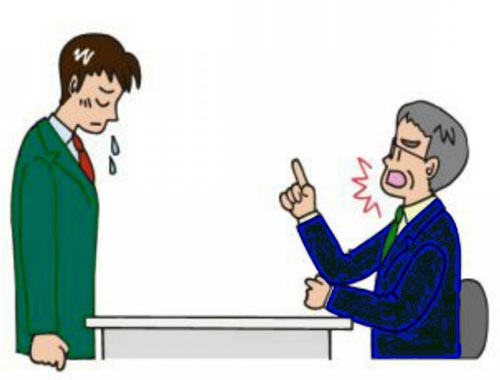Stress

Published: 18 Jun 2025
ICD9: 308.9 ICD10: F43.0 ICD11: QE01
The word "stress" can have several meanings, depending on the context.
Here's a breakdown of the most common ones:
1. In Biology and Psychology (Most Common):
![]() Definition: Stress is your body's reaction to any demand or change. It can be caused by a wide variety of things, from major life events to minor daily hassles. It's how your brain and body respond to challenges.
Definition: Stress is your body's reaction to any demand or change. It can be caused by a wide variety of things, from major life events to minor daily hassles. It's how your brain and body respond to challenges.
![]() Types:
Types:![]()

![]() Acute stress: Short-term stress, often caused by a specific event like a deadline or a difficult conversation.
Acute stress: Short-term stress, often caused by a specific event like a deadline or a difficult conversation.![]()

![]() Chronic stress: Long-term stress that lasts for weeks, months, or even years. This can be caused by ongoing problems like financial difficulties, relationship issues, or job dissatisfaction.
Chronic stress: Long-term stress that lasts for weeks, months, or even years. This can be caused by ongoing problems like financial difficulties, relationship issues, or job dissatisfaction.
![]() Physiological Effects: When you're stressed, your body releases hormones like cortisol and adrenaline, which can lead to:
Physiological Effects: When you're stressed, your body releases hormones like cortisol and adrenaline, which can lead to:![]()

![]() Increased heart rate
Increased heart rate![]()

![]() Elevated blood pressure
Elevated blood pressure![]()

![]() Rapid breathing
Rapid breathing![]()

![]() Muscle tension
Muscle tension![]()

![]() Suppressed immune system
Suppressed immune system
![]() Psychological Effects: Stress can also lead to:
Psychological Effects: Stress can also lead to:![]()

![]() Anxiety
Anxiety![]()

![]() Irritability
Irritability![]()

![]() Difficulty concentrating
Difficulty concentrating![]()

![]() Depression
Depression![]()

![]() Sleep problems
Sleep problems
![]() Examples: Feeling stressed before a job interview, dealing with a sick family member, managing a heavy workload.
Examples: Feeling stressed before a job interview, dealing with a sick family member, managing a heavy workload.
2. In Physics and Engineering (Material Science):
![]() Definition: Stress is a measure of the internal forces acting within a deformable body. It represents the force acting on a cross-sectional area of the object. Think of it as the internal resistance of an object to an external force.
Definition: Stress is a measure of the internal forces acting within a deformable body. It represents the force acting on a cross-sectional area of the object. Think of it as the internal resistance of an object to an external force.
![]() Units: Typically measured in Pascals (Pa) or pounds per square inch (psi).
Units: Typically measured in Pascals (Pa) or pounds per square inch (psi).
![]() Types:
Types:![]()

![]() Tensile stress: Stress caused by pulling or stretching.
Tensile stress: Stress caused by pulling or stretching.![]()

![]() Compressive stress: Stress caused by pushing or squeezing.
Compressive stress: Stress caused by pushing or squeezing.![]()

![]() Shear stress: Stress caused by forces acting parallel to a surface.
Shear stress: Stress caused by forces acting parallel to a surface.
![]() Related to Strain: Stress is related to *strain*, which is the deformation of the object caused by the stress. Stress causes strain.
Related to Strain: Stress is related to *strain*, which is the deformation of the object caused by the stress. Stress causes strain.
![]() Example: The stress on a bridge cable due to the weight of the traffic, the stress on a bone when you jump.
Example: The stress on a bridge cable due to the weight of the traffic, the stress on a bone when you jump.
3. In Linguistics:
![]() Definition: Stress refers to the emphasis given to a syllable in a word (or a word in a sentence). It's how we make certain syllables or words sound louder, longer, and/or higher in pitch than others.
Definition: Stress refers to the emphasis given to a syllable in a word (or a word in a sentence). It's how we make certain syllables or words sound louder, longer, and/or higher in pitch than others.
![]() Word Stress: In English, the position of stress in a word can change its meaning (e.g., "present" as a gift vs. "present" as to introduce someone).
Word Stress: In English, the position of stress in a word can change its meaning (e.g., "present" as a gift vs. "present" as to introduce someone).
![]() Sentence Stress: We also stress certain words in a sentence to emphasize them or to convey specific meaning.
Sentence Stress: We also stress certain words in a sentence to emphasize them or to convey specific meaning.
![]() Example: In the word "photograph," the stress is on the first syllable: pho-to-graph.
Example: In the word "photograph," the stress is on the first syllable: pho-to-graph.
4. In General Usage:
![]() Definition: To emphasize something.
Definition: To emphasize something.
![]() Example: "I want to stress the importance of being on time."
Example: "I want to stress the importance of being on time."
How to determine which meaning is intended:
The context is key. Consider:
![]() The overall topic of conversation or writing: Is it about health, engineering, language, or something else?
The overall topic of conversation or writing: Is it about health, engineering, language, or something else?
![]() The surrounding words and phrases: Are there words like "anxiety," "pressure," "deformation," or "syllable"?
The surrounding words and phrases: Are there words like "anxiety," "pressure," "deformation," or "syllable"?
In summary, "stress" is a multifaceted term with diverse meanings across various domains. Understanding the context is crucial for accurate interpretation. If you can provide the sentence or situation where you encountered the word "stress," I can give you a more specific and accurate explanation.